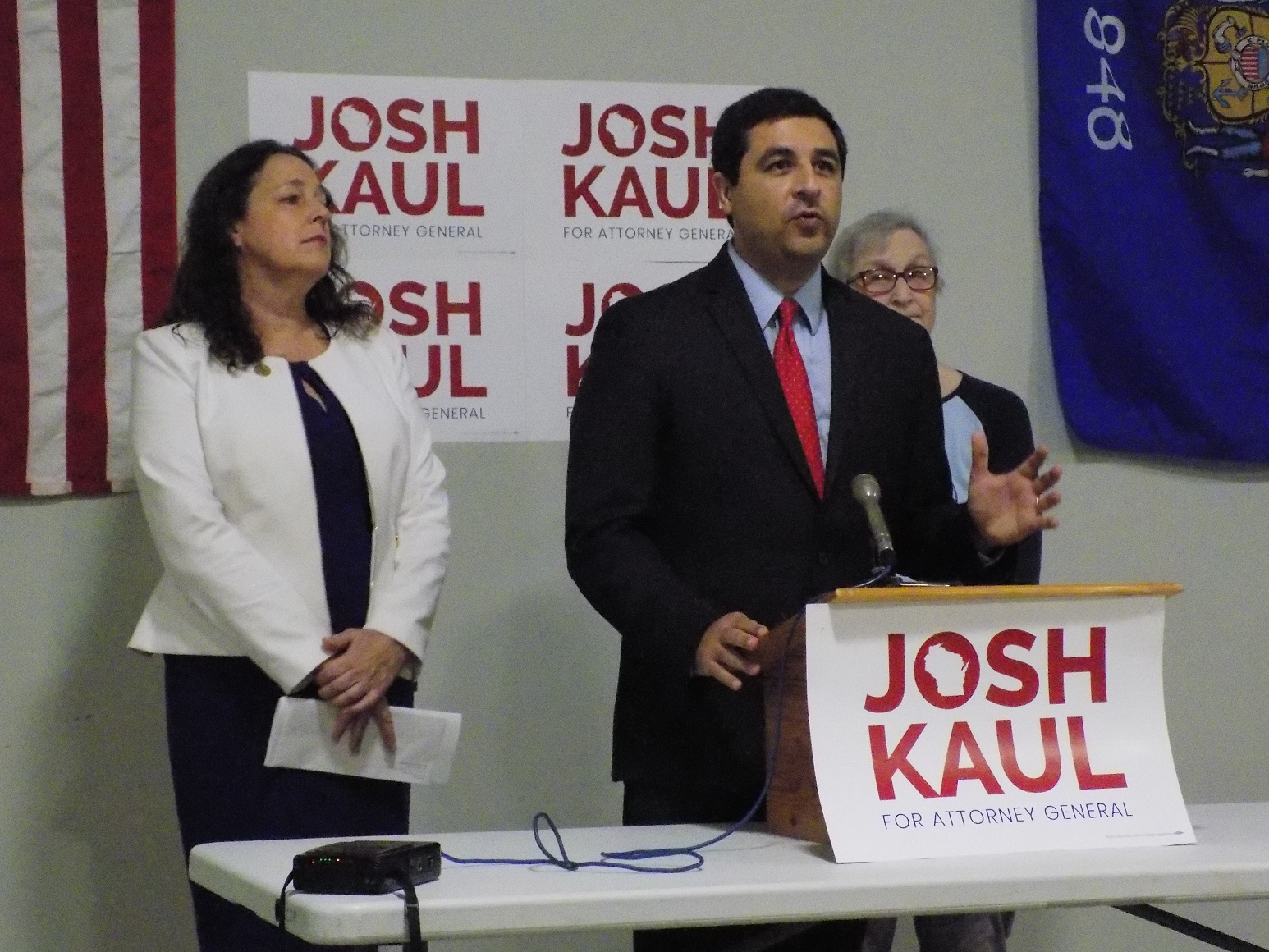Wisconsin
Wisconsin Attorney General Kaul scores wins, clashes with GOP during first year

MADISON, Wis. (AP) — Wisconsin Attorney General Josh Kaul’s first year in office was a mixed bag of resounding victories and frustrating defeats. He made plenty of moves to please his base but ran afoul of Republican lawmakers before his first day on the job. Here’s a look back at the rookie attorney general’s first year and his goals for 2020:
WINS
— Sexual assault kit testing. Kaul frequently attacked his Republican predecessor, Brad Schimel, over his inability to finish testing on about 4,470 sexual assault evidence kits sitting on hospital and police shelves. Kaul announced in November that he had finally finished the job. About a dozen criminal cases have resulted from the testing so far.
— Opioids. Kaul in May sued Oxycontin maker Purdue Pharma, alleging the company downplayed addiction risks. Forty-five other states have filed similar lawsuits. Kaul had argued that Schimel was too soft on pharmaceutical companies whom Kaul argued played a role in the country’s opioid addiction crisis.
— Polluters. Kaul changed the state Justice Department’s stance in a pair of environmental lawsuits. He sided with Clean Wisconsin in arguing that regulators can require factory farms to monitor their impact on groundwater pollution and limit the farms’ number of animals. Kaul also argued that regulators can consider high-capacity wells’ cumulative impact on area groundwater when issuing permits. Both cases are still pending before the Supreme Court.
— Health care. Kaul fulfilled his campaign promise to withdraw Wisconsin from a multistate lawsuit seeking the repeal of the federal healthcare law known as Obamacare. After Kaul defeated Schimel, Republicans passed measures during a December 2018 lame-duck session prohibiting Kaul from withdrawing from lawsuits without legislators’ permission. Kaul was still able to withdraw from the health care lawsuit while the lame-duck laws were on hold, however.
LOSSES
— Lame-duck. Republican lawmakers fearful that Kaul wouldn’t defend their positions in court voted in a lame-duck session to limit his powers. In addition to requiring him to obtain legislators’ permission before withdrawing from lawsuits, they mandated that he get permission from the Legislature’s Republican-controlled budget committee before settling any lawsuits. Kaul must also deposit settlement awards in the state’s general fund rather than in Justice Department accounts. Kaul has refused to share any information about any potential settlements with the budget committee, saying settlement discussions are confidential. The two sides go into 2020 in a stalemate that could jeopardize millions of dollars in potential revenue for the state.
— Drug traffickers. Kaul promised on the campaign trail to target high-level traffickers as part of his anti-opioid efforts but didn’t announce any major arrests in 2019.
— Guns. Kaul tried to persuade Republicans to take up bills that would have mandated universal background checks and created a red-flag law allowing family members and police to ask a judge to seize firearms from people who may pose a threat. The GOP ignored the proposals.
—Crime lab analysts. Kaul asked Gov. Tony Evers for $4.4 million to hire 19 additional crime lab works after criticizing Schimel for testing delays. Evers proposed $1.9 million for 17 more analysts in his state budget. Republicans on the finance committee revised the spending plan to give Kaul $722,400 for just over seven positions.
WHAT’S NEXT?
Kaul told The Associated Press in an interview that he would give his first year in office an A-minus. But he said he wants to do more in 2020.
One of the biggest tasks facing him as the year begins is trying to block the conservative Wisconsin Institute for Law and Liberty’s lawsuit alleging state election officials must purge more than 200,000 voter registrations immediately because the voters may have moved. The lawsuit could have huge implications for Democrats, who hope a strong turnout at the polls in November will ensure Republican President Donald Trump doesn’t win the state again.
Another priority will be setting up some sort of settlement approval process with Republican lawmakers before the state loses out on potentially tens of millions of dollars in potential revenue.
“It’s critical that a process be in place because when there are multi-state matters going on we need to be able to act quickly,” Kaul said. “I think (Republican lawmakers have) a responsibility to come up with a system that’s going to work and unfortunately they haven’t been able to reach agreement on that so far.”
He also wants the Legislature to pass a bill designed to prevent future backlogs of untested sexual assault kits. The Senate passed the bill in October but the measure has languished in the Assembly.
Kaul signaled, too, that he wants to get tougher on polluters responsible for contaminating state drinking water with chemicals known as PFAS. The man-made substances are used in a variety of nonstick products such as firefighting foam.
“If environmental laws of the state of Wisconsin have been violated and there’s significant cases referred to us, we’re serious about holding public polluters accountable and that’s true whether it’s PFAS or other substances that can cause harm to people,” Kaul said.
Senate Majority Leader Scott Fitzgerald said he’d give Kaul an incomplete for his first year “due to his inability to find a common-sense way to work with the Legislature on settlements.”
Follow Todd Richmond on Twitter at https://twitter.com/trichmond1







